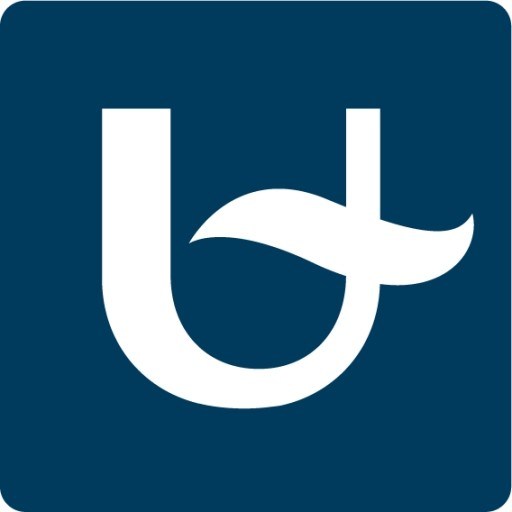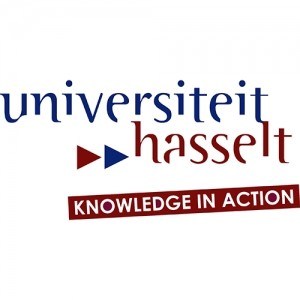Photos of university / #uantwerpen
The Data Science master's program at the University of Antwerp provides students with a comprehensive and in-depth education in the rapidly evolving field of data analysis and computational techniques. Designed to equip graduates with advanced skills, the program combines theoretical knowledge with practical application, preparing students to address complex real-world problems across various industries. Throughout the curriculum, students explore key concepts such as statistical modeling, machine learning, data mining, data management, and visualization. Emphasis is placed on developing strong programming skills in languages like Python and R, as well as understanding data-driven decision-making processes.
The program is tailored for students with a background in mathematics, computer science, engineering, or related disciplines, seeking to deepen their expertise in data science methodologies. Students will undertake a variety of coursework, including courses on algorithms, artificial intelligence, big data technologies, and ethical considerations in data handling. In addition to coursework, the program offers opportunities for applied research through projects and collaborations with industry partners, allowing students to gain practical experience and insights into current challenges in data science.
Students also have access to state-of-the-art laboratories and tools that facilitate hands-on learning and experimentation. The program’s curriculum is regularly updated to reflect the latest developments and innovations in the field, ensuring graduates are well-prepared for the dynamic job market. Graduates of the Data Science master's program at the University of Antwerp are equipped to pursue careers in data analysis, machine learning engineering, data consultancy, and research positions in academia and industry.
With a strong emphasis on both theoretical foundations and practical skills, the program aims to foster analytical thinking, problem-solving capabilities, and an understanding of ethical and societal implications of data use. It prepares students to contribute meaningfully to technological advancements and data-driven solutions that shape the future across sectors including healthcare, finance, marketing, and more. Graduates leave with a solid portfolio of projects, research experiences, and professional competencies that enhance their employability and career growth.
Model path part 1
Compulsory courses
- Data mining
- Database systems
- Information retrieval
- Distributed computing
- Modelling of software-intensive systems
- Computer and network security
Elective courses
- Bioinformatics
- Big Data Algorithms
- Data Science Project
- Current Trends in Data Science
- Case Studies in Data Science
- Introduction to performance modelling
- Mobile and wireless networks
- Topics in networks and distributed systems
- Selected topics in software engineering
- Model driven engineering
- Programming paradigms
- Software reengineering
- Academic Literacies for Scientists
Model path part 2
- Master thesis
Compulsory courses
- Data mining
- Database systems
- Information retrieval
- Distributed computing
- Modelling of software-intensive systems
- Computer and network security
Elective courses
- Bioinformatics
- Big Data Algorithms
- Data Science Project
- Current Trends in Data Science
- Case Studies in Data Science
- Introduction to performance modelling
- Mobile and wireless networks
- Topics in networks and distributed systems
- Selected topics in software engineering
- Model driven engineering
- Programming paradigms
- Software reengineering
- Academic Literacies for Scientists
Requirements
- Applicants should hold an academic Bachelor’s degree in the related area. Students who are still completing their Bachelor’s degree are also encouraged to apply. They should submit an official letter in English from their university confirming that the student is expected to finalise her/his Bachelor’s studies at the end of the current academic year, and submit up-to-date authenticated transcripts with the results of the previous years.
- Applicants are also required to submit a GMAT or GRE test score. Both the verbal and quantitative score will be taken into consideration.
- TOEFL (Test of English as a Foreign Language): paper-based TOEFL level of minimum 550, a computer-based TOEFL level of minimum 213 or an internet-based TOEFL level of minimum 80. You can find more information about TOEFL at www.toefl.org
- IELTS (International English Language Testing System): a minimum score of at least 6.5, and on each part minimum 6.0. You can find more information about IELTS at www.ielts.org;
- A copy of your valid passport or identity card/a curriculum vitae
- A motivation letter
- A legalised copy of your degree certificate (please read more information on legalisation)
- Applicants that are enrolled in the final year should submit an original and signed letter from their college or university confirming that they are expected to finalise the program at the end of the current academic year
- A copy of your academic transcripts, provided with a stamp of the university
Scholarships
- VLIR-UOS: scholarships for students from developing countries: Scholarships are available for students from 54 scholarship countries in Africa, Asia and Latin-America to follow a training or master programme at the University of Antwerp.
- ASEM-DUO: Scholarships are available for students from China, India, South-Korea and Vietnam.
- Transition Fellowship Programme: Scholarships are available for students from 4 countries in transition (Brazil, Morocco, South Africa and Turkey).
- Mastermind: Scholarships are available for international students who want to take up a master degree programme.
- Global Study Awards: An individual global study award with a maximum value of £10000
Data Science at the University of Antwerp is an interdisciplinary Master's degree program designed to equip students with the skills and knowledge necessary to analyze, interpret, and leverage vast amounts of data across various domains. The curriculum combines principles from computer science, statistics, and business analytics, providing a comprehensive foundation in data processing, machine learning, and data management. Students will learn to develop algorithms, build predictive models, and apply statistical techniques to real-world problems. The program emphasizes practical experience through project-based learning, internships, and collaboration with industry partners, preparing graduates for roles such as data analyst, data scientist, or machine learning engineer. Courses cover topics like programming in Python and R, data visualization, database management, and ethical considerations in data handling. The program also includes training in advanced topics such as deep learning, artificial intelligence, and big data technologies. The university collaborates with various companies and research institutions, offering students opportunities to work on innovative projects that address current societal challenges. Graduates will be well-equipped to contribute to data-driven decision-making in diverse sectors such as healthcare, finance, marketing, and public policy. The program is designed for students with a background in science, engineering, or mathematics who seek to specialize in the rapidly growing field of data science and analytics. Overall, the Data Science master's program at the University of Antwerp provides a rigorous academic experience combined with practical industry exposure, ensuring graduates are prepared for dynamic careers in this expanding field.



